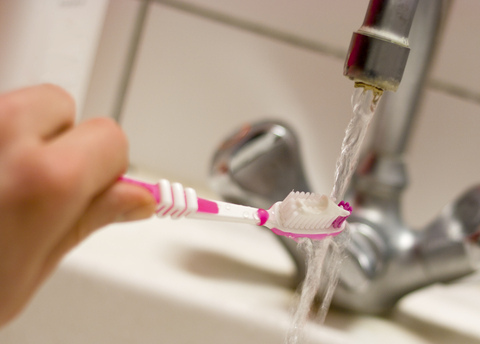Periodontal Health during Pregnancy
October 27th, 2021

Congratulations! Your pregnancy is a time of joy and excitement—and a time to take special care of yourself. You’ve discovered that pregnancy brings many physical changes, but it may still come as a surprise to learn that pregnancy hormones can affect your oral health as well. What should you look out for?
Gingivitis
Beginning in the second or third month of pregnancy, your gum tissue may show signs of gingivitis. Pregnancy hormones can cause an increase in the blood supply to your gums and affect the way your gums respond to plaque. These changes may lead to gums that are swollen, red and more likely to bleed upon brushing. This early form of gum disease should be treated as quickly as possible to avoid a more serious condition called periodontitis.
Periodontitis
Without treatment, the inflammation caused by gingivitis can increase. Periodontitis can lead to gums pulling away from the teeth, creating “pockets” that can be home to infection. These infections can lead to bone and tooth loss, so professional treatment is a must.
Pregnancy Granulomas
If you find a dark red swelling along the gumline or between two teeth, it might be a pregnancy granuloma. These granulomas are thought to be triggered by pregnancy hormones and may be a reaction to plaque or some other irritant. They often disappear once your baby is born and usually don’t cause any bother, but if you develop discomfort eating or speaking, your dentist might suggest removal.
You are looking for every way possible to provide your baby with the best start in life, so it is important to know that some studies have suggested a link between periodontal disease in pregnancy and complications such as pre-term delivery and low birth weight. Here are some important ways to maintain your oral health during pregnancy:
- Call Dr. Kozica when you find out you are pregnant. We have suggestions for your dental care that you can use immediately.
- Keep to your regular schedule of dental examinations and cleanings at our Worcester office. If you find your gums beginning to show signs of gingivitis, call our office for an appointment. You might need to have your teeth cleaned more often during your pregnancy to avoid plaque buildup.
- Maintain your daily dental hygiene. Be sure to carefully brush along the gumline to discourage plaque formation. If you have not switched to a soft bristle toothbrush, now is the time! Talk to us about possible rinses or other at-home treatments.
- See a periodontist if needed for more serious gum problems.
Your pregnancy is a time to treat yourself and your baby with care. Talk to our office as soon as you find out you are pregnant. Making your dental health a priority can bring rewards both now and in the future, and we welcome the opportunity to suggest the best possible ways to care for yourself and your baby!



